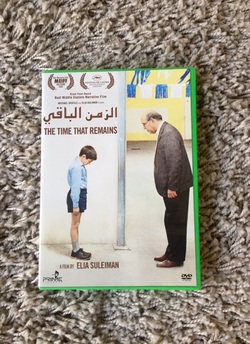 What it’s about: A semi-biographic film of how the Palestinian, Christian Sleiman family’s life changes in 1948, the day of the creation of the State of Israel, and the effect this historic event has had on them from that point until recent times (the film was released in 2009). The film begins with Elia Suleiman (played by the actual director of the film) setting out to the airport after visiting his family home in Nazareth. Once in the taxi, he is caught in a severe thunderstorm that forces the taxi driver to park up. Enveloped in the car’s claustrophobic atmosphere, the memories resurface as the Israeli taxi driver repeats over and over again ‘what is this place?’ and ‘How do I get home?’ The memories transport the viewer to the day when the State of Israel was created in 1948. Most of the Suleiman family is packing up a few belongings to take with them to Jordan for a short visit, in the belief that they will be back once things have settled down. The young Fouad Suleiman, (the director's father) is a resistance fighter. He is captured by the Israelis, beaten up and left for dead. He survives, marries and has son (director Elia Suleiman) and the film is a documentary of the events of his life since then. 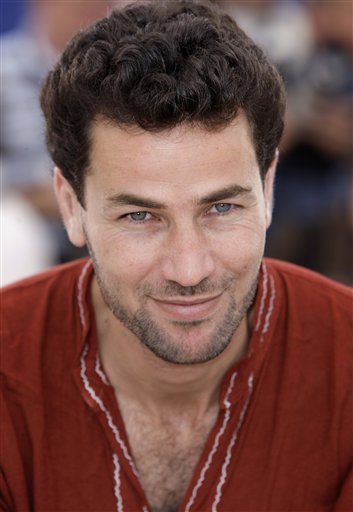 Actor Saleh Bakri Actor Saleh Bakri Why watch it: This is an award winning film by Palestinian film director and actor Elia Suleiman who based his film on original diaries left to him by his late father Fouad as well as his late mother’s letters that she wrote to the family in Jordan who were never to set foot back in to Palestine. The director also relies on his memory living in Nazareth as an Arab-Israeli, a minority of Palestinians who stayed behind after Israel declared its state and who later accepted Israeli citizenship. The best word I can find that best describes this film is ‘haunting’. It is strange in that I also found it turbulent (although there was hardly any violence), loud (although it was very low-key in its music and dialogue was kept to a bare minimum), and very emotional (although no outbursts of emotions were present). It is a very lovely film, shot in 4 separate parts. The style is not one familiar of the region, and the closest I personally have watched of the style is an Armenian film shown at last year's Abu Dhabi Film Festival entitled 'The Color of Pomegranates' by director Sergei Parajanov. And you know what? Just watch it for the actor Saleh Bakri, who plays Fouad Suleiman in the film. He is a formidable actor who has been likened as the Middle East's lookalike of Cary Grant or even Clark Gable. He will be appearing in the soon-to-be released film 'Zinzana'. Here’s what the critics in The Guardian and The New York Times thought of the film. The film is available at Virgin Megastore in Abu Dhabi and on itunes.
0 Comments
I finally got round to watching ‘When I Saw You’, a Palestinian film directed by AnneMarie Jacir. This has been on my list since it came out in 2012 and each time I’ve set my mind on watching it, something would come up. However, last weekend, armed with popcorn and my laptop, making sure Mr. Fabulous was engrossed in the football, and JJ equally occupied with his Xbox, I pressed play and voila, here’s what it’s all about:
The film follows Tarek (Mahmoud Asfa), a Palestinian 11-year old boy in the Harir refugee camp for Palestinians in Jordan. The year is 1967 and Tarek and his mother Ghaydaa (played by Ruba Blal) are living in temporary prefab accommodation, as they wait for Tarek’s father to leave Palestine and join them. Existing in a daily state of wait, Tarek does not fare well adjusting to his new life in exodus living solely in the hopes of one day soon returning to his home, his school, his friends. Although illiterate, he is a bright young boy with a knack for numbers. It is clear that he is suffering the consequences of displacement marked by aloofness, emotional outbursts, and a resolute unwillingness to accept his fate as the adults in the camp seem to have done. He struggles to grasp how life can keep going on when all he wants is to go back to a normalcy that was forcefully and without choice taken away from him. And life, as we see in the camp, does seem to move on, albeit slowly and monotonously, as people of the camp marry, children go to school, men meet for coffee and one observes how even in these obviously harsh, exposed conditions with very little privacy there remains a sense of community with people trying to restore a sense of normalcy to their lives. Yet, always the waiting. Tarek’s mum, who works in a make-shift sewing establishment, is clearly unhappy with the way things are but reassures her son that the camp is the safest place for the time being and the place where Tarek’s father will eventually come to join them. So, they too must wait. One cannot blame Tarek for his unwillingness to adapt as the screen spans a long queue of men waiting to use the outside toilet, if one could call it that, which once Tarek gets a turn is revealed to be a cesspool of flies and human excrement, as if further proof were needed to the dire miserable day-to-day infringement on human decency in the camps. One shudders to think how people got by and is constantly reminded of the more recent refugees from Syria. Day in, day out, expelled from school, Tarek anxiously awaits the arrival of the trucks that hoard in more of the refugees fleeing to safety and yet none deliver his father and nobody has news of him or his whereabouts. Who they do bring with them though is ‘freedom fighter’ Layth (played by Saleh Bakri) who is on the look-out for recruits to join the fight for reclaiming Palestine from the Israelis. This is when Tarek’s interest is spiked and he develops a fixation that lies in abandoning the Harir camp to join the guerrilla Fedayeen. Spurred on by his panic that try as he can, he is forgetting details that should have been easy to remember from back home, and inspired by his mum’s words that home ‘is where the sun always rises’ he sets on his individual quest to join the fighters and return home. This is where the film takes on a very interesting turn even more so when Ghaydaa joins her son and we meet the young men and women of the guerrilla. Expecting them to be blood thirsty individuals out for revenge, I was slightly taken aback by the director’s choice to present the audience with a group that was more about love not war, compassion not revenge, campfires and songs. The atmosphere was light, as if the group were on a school camping trip rather than a quest to liberate a country. Thankfully this lightness was balanced by the sturdy presence of character Abu Akram (played by Ali Elayan). Again, a notable refreshing take on the Fedayeen considering that although known as ‘freedom fighters’ by many Arabs, were tagged as terrorists by many of the Western world leaders. ‘When I Saw You’ is the story of a refugee, an 11-year-old Palestinian in this instance, that has had the carpet swept from under his feet. It is also about life witnessed through the eyes of a child who sees the world as vast and the possibilities as endless and the solutions as obvious unable to accept the finality and the unfairness of how things really are. As young as he is, Tarek is a leader in his own right and whether you agree with the rightness or wrongness of the mission at hand, one thing is certain: the character is played by a mighty fine debuting actor. ‘When I Saw You’ is a Palestinian film directed by AnneMarie Jacir. A multi award winner for best Best Asian Film at the 63rd Berlin International Film Festival, NETPAC award, Best Arab Film at the Abu Dhabi International Film Festival, Special Jury Prizes at the Oran Film festival of Arab Cinema and the Cairo International Film Festival, the Film Critics Don Quixote Award of the Carthage International Film Festival, and Audience Choice Award as well as the SIGNIS Award for Best Film at the Amiens International Film Festival. The film is available to buy or rent on itunes. 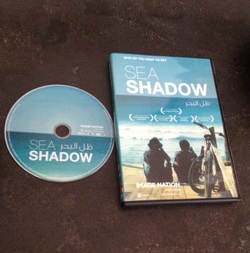 The blurb about the film: Set in a small seaside neighbourhood in the United Arab Emirates, 'Sea Shadow' follows two teenagers Mansoor and Kaltham as they struggle with tradition and convention in their journey towards adulthood. Bound by family and deeply rooted values, the pair must find the courage to forge their own paths. 'Sea Shadow' held its World Premier at the Abu Dhabi Film Festival in October 2011 and was released in theatres throughout the Gulf Arab States in November 2011. It premiered in the United States at the Palm Springs International Film Festival in January 2012 and went on to be officially selected in over twenty international film festivals. What I thought: 'Sea Shadow' is an intimate, up close and personal portrayal of everyday life in a small Emirati town by the sea. Teenagers Mansoor (played by Omar Al-Mulla) and Kaltham (played by Neven Madi) belong to two Emirati families that struggle with life on a daily basis. Mansoor's mum is bread winner of her family since his dad is confined to a wheelchair unable to work, and Kaltham's dad although physically capable has become emotionally paralysed after the death of his wife. Depressed and emotionally clogged he has turned sour, bitter and nonchalant towards his three children. With his eldest son living in Abu Dhabi, married to Jane, Kaltham's father is unaware of her beauty and the danger it brings with it for Kaltham and the family. The movie sheds light on a segment of Emirati society that is rarely known to the world about the UAE. These are not affluent stereotypical jet-setting Emiratis with their flashy cars, palatial mansions and army of servants. These are struggling Emiratis with financial woes trying to keep up with modern life as best they can. The movie seems to suggest that because life in that seaside town is more genuine, not yet fully tainted by modernity, then ultimately emotions and reactions will be coarse, rough even basic. At least that is how I felt towards certain scenes in the film. Talking of scenes, my best by far were those of Mansoor and his best friend Sultan (played by Arbar Al-Hamad). They are excellent actors and those two, in my opinion, are the ones who hold the movie together. There are briefly dull scenes in the film, but Mansoor and Sultan are the breeze that this vessel needs to continue its journey. I enjoyed the film and thought it a beautiful story about the innocence of young love in a country that strives to re-conciliate between its proud traditions and values and its global modern image. Yes, it was slow in places but the beautiful scenes in the film more than make up for the monotony. Director: Nawaf Al-Janahi Writer: Mohammed Hasan Ahmed Stars: Omar Al-Mulla, Neven Madi, Abrar Al-Hamad, Aisha Abdul Rahman and Bilal Abdullah Duration: 98 mins On the occasion of the 40th anniversary of the Alliance Française Abu Dhabi, two local-based artists, painter Bénédicte Gimonnet and painter/photographer Isabelle Avenarius shared an exhibition that showcased their perception of the urban and natural landscapes of the Middle East drawing inspiration from Arabian Art and culture.
Beautifully arranged around the Alliance's premises, the displays take on an entirely new dimension once the inspiration behind each is translated into words. To shed light on her photography, art and the mechanics of her work, Isabelle Avenarius took the time out of her very busy schedule for a quick chat with BookFabulous. BookFabulous (BF): The photographs on display are brilliant, but you started out as a painter. So, what got you interested in photography? Isabelle Avenarius (IA): Yes, I am a painter but I was interested in experimenting with other visual medias and using a camera like a pencil. All this experimenting led to my first Photo-series 'Impressions Naturelles' in 2008. BF: How do you get inspired to start on a project? IA: I am mostly inspired by the contrast in a new environment and its features (nature, architecture and light). BF: Tell us a little about the collaboration between yourself and Bénédicte Gimonnet to produce this exhibition ‘City, Desert and Sea’? IA: As we recently discovered each other’s work, we found out that we were inspired by similar subjects but using different techniques. On the occasion of the 40th anniversary of the Alliance Française in Abu Dhabi, Bénédicte and I proposed the concept of a visual dialogue between her painting and my photography. BF: Which of the pieces on display did you most enjoy working on and why? IA: The 'Serie Mosaiques' is a tribute to the traditional Arabian Art. Each time I am using slightly different techniques (Illusion of a wood inlay work or a stone mosaic with a geometrical pattern), it is always a new challenge. My favourite piece is called 'The Marina', the first creation that inspired the other pieces of work in this series. BF: I understand that the series is not all on exhibit here, does that mean we can expect future additions? IA: Yes there are more works to come. The exhibition at The Alliance Française is a preview of the entire 'Serie Mosaiques' that is yet to be exhibited in full. BF: You have previously exhibited in different places around the world, how was the experience of working on ‘City, Desert and Sea’ in Abu Dhabi different to that? IA: So far I have exhibited in Paris, Zurich, Zermatt and Germany (online Gallery whitewall). My work there was mostly inspired by the landscapes of Northern Europe, France, Switzerland and Peru. Now, in Abu Dhabi, I describe the encounter of the city with its natural surroundings. So I am also focusing on architectural photography using geometric patterns influenced by the Arabian Art. BF: Regarding the type of gear; Does using the best equipment necessarily translate into the best photo? IA: Photography is not all about your equipment. It is about observation and inspiration, capturing the subject, the light and movement at the right time. It is also about your interpretation of what you see and creativity. BF: So, what advice would you give to budding artists to hone in their skill even if they cannot afford the best equipment? IA: Even with a simple camera practice a lot and discuss your work with other photographers. BF: Back to painting. Is there any work in the pipelines right now? IA: This photography 'Serie Mosaique" was initially inspired as I was painting the nature around me [in Abu Dhabi]. However, I have not been painting recently although I always keep in mind using both techniques together. BF: Since BookFabulous is obsessed with all things books, what books have influenced your artistic journey and what are you reading right now? IA: My artistic journey is mainly influenced by visual experiences while travelling rather than by my reading. However, I am presently reading a trilogy called 1Q84 by Haruki Murakami. The exhibition runs until Saturday, March 22, at the Alliance Française, Abu Dhabi. Lights, flashbulbs, and sequins galore. It was all there at Abu Dhabi's 7th Film Festival held at the Emirates Palace Hotel. In splendidly majestic surroundings saturated with Arabian perfumes, the creme de la creme of the local and international cinema industry descended on the festival's red carpet to be greeted by fans and a heavy media presence before heading to the hotel's Auditorium where the opening ceremony was held.
With 'bling' overshadowing the glare of the massive crystal chandeliers, it was a sight to behold on the red carpet. Not only were the celebrities dressed to impress but the invited guests matched their idols suit for suit, dress for dress, and botox for botox. There wasn't a wrinkle in the house, and one sensed that out beyond the Palace walls were plastic surgeons, beauticians, make-up artists, hairdressers, and dress-makers falling exhaustedly into their beds knowing their job, at least for this night, was done. And yet, in spite of all the glitz and the glamour, the ceremony was not flawless. The presenters of the show shouted into the microphone, stammered through the few lines of their presentations and struggled profoundly to pronounce foreign names of international directors, producers and judges called onto the stage for an impromptu photo shoot. Everyone else shifted impatiently in their seats waiting for the opening night's film to start. But the people who most let down the festival were some of the invited guests. Dressed to the nines and singing the praises of the festival to the camera, they were the first to leave the auditorium as soon as the lights were switched off announcing the commencement of the film. Was it the film's content that they objected to with its sexual scenes and innuendos? Was it that some collective unforeseen emergency had arisen? or was it simply that away from the limelight, they simply did not care? Now, this writer is not naive and perfectly well understands that tickets to these events are handed to corporations that distribute them amongst their staff. So, I do understand that this means that not everyone is there to support the film industry per se, but one would expect that if one has taken the trouble to attend a film festival then one would at least stay to watch the film? My suggestion would be that perhaps festival organisers should probably work on compiling a more industry-worthy invitee list for next year. However, in all fairness, flawed as the ceremony was, it wasn't a complete wash-out either. It was a beautiful night with a very worthy film screening of 'Life of Crime' by director Schechter and producer Ashok Amritraj. Mark Boone Junior, who plays sinister character Richard, also attended the night's screening. His performance was blood curdling and was deserving of every bit of the applause resonating around the majestic Auditorium at the end of the movie. It was to deafening applause that super actor Forest Whitaker took to the stage to be awarded the Black Pearl Lifetime Achievement award. With his usual grace and charisma, he gave a beautiful speech thanking the festival organisers for the award and re-iterating how much it meant for him. He ended his speech with a few verses he'd learned from the Quran to the delight of the audience. The cheering and clapping took quite a while to abate. The ceremony's after-party was a lavish affair and seemed to come straight out of a scene of 'The Great Gatsby' with live jazz music blaring away before switching to house music. Everyone seemed to be in high spirits. However, by then it was midnight and my feet had had enough signalling it was time for me to go. Off I slipped away from the palace, with both slippers still on, to a land beyond the magical Palace walls, to a sweet little place that I've recently started to call 'home'. 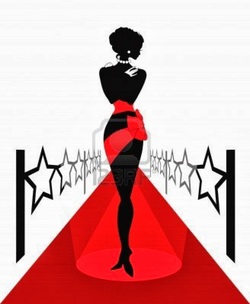 The Abu Dhabi Film Festival opens tomorrow and I'm right there on the red carpet rubbing shoulders with the stars. It is such a big event here and many of the Arab and International cinema stars are convening on Abu Dhabi for a fantastic 9 days of all things cinema. The festival opening night will feature the Middle East premiere of 'Life of Crime' starring Jennifer Aniston, Tim Robbins, and Isla Fisher. Director Daniel Schechter and actor Mark Boone Junior will discuss the film at a live audience Q&A during the opening night. The movie is a comedy based on the novel 'The Switch' by Elmore Leonard. I'll have all the details of the night on Friday! so be sure to tune in! Super actor Simon Whitaker is expected to attend and who, by the way, is going to receive the Career Achievement Award. I know you must all know who he is, but for those who've 'forgotten' he's the guy who played Ugandan dictator Idi Amin in 'The Last King of Scotland' (2006). Also gliding down that red carpet will be actress Hiam Abbas who starred in the movie 'Miral' (2010), Egyptian actors Ahmad Ezz, Basel Khayyat, and many many others. Two actresses that I am personally hoping to catch a glimpse of are Mervat Ameen and Lebleba, two very well established actresses who have had a major influence on Arab cinema. Of course there are many distinguished actors and directors from all over the world who will be present and in fear of forgetting to mention any of them I have pasted the full press release of the ADFF at the end of this post. So, as I'm too excited to review any books and this gal has a lot of 'getting pretty' to do in preparation for the RED CARPET, I leave you with this fantastic band that is taking the Arab world by storm. 'Mashrou' Leila' (literally means Leila's Project) are a six-member band from Lebanon who have performed their alternative Arabic music live to sold-out venues in Lebanon, Cairo, Amman, Istanbul, Dubai, Tunisia, Paris, Amsterdam, Montreal, Geneva and Serbia. Their third album is to be released this year. This track 'Fasateen' is brilliant. Visit their Facebook page /their website HERE & to listen to the music/buy their albums click HERE The full press release of ADFF Abu Dhabi, UAE – October 23, 2013: Abu Dhabi will play host to film stars and other leading lights of the international film world when the seventh Abu Dhabi Film Festival opens tomorrow. Household names will walk the red carpet alongside new talents that the audience will discover during the nine day celebration. Festival Guests will attend screenings of their films, giving film fans a chance to hear insider stories first hand. The seventh ADFF opens with the Middle East Premiere of LIFE OF CRIME. The director Daniel Schechter and actor Mark Boone Junior will discuss the film at a live audience Q&A during the Opening Night. Also attending Opening Night is acclaimed US actor Forest Whitaker, who won 23 major acting awards, including the Academy, Screen Actor’s Guild and BAFTA awards, for his performance as Ugandan dictator Idi Amin THE LAST KING OF SCOTLAND (2006). Whitaker, who has starred in iconic films like THE CRYING GAME (1992) as well as turning his hand to producing (Fruitvale Station) and directing films such as HOPE FLOATS, 1998 and WAITING TO EXHALE. In partnership with Jaeger-LeCoultre, Whitaker will receive a Black Pearl Career Achievement award. Actress Hiam Abbass (Munich, 2005; THE VISITOR, 2007; MIRAL, 2010; and PEACE AFTER MARRIAGE which world premieres at ADFF 2013) will also be presented with a Black Pearl Career Achievement Award in recognition for her admirable contributions to cinema as an artist, actress and professional. Mervat Amin will lead the Arab stars down the carpet, including Hend Sabri, Ahmad Ezz, Basel Khayat, Eyad Nassar, Kinda Aloush, Abed Fahad, Manal Khader, and Nesrine Tafesh. Egyptian stars Lebleba and Khaled Abol Naga, whose latest film VILLA 69 has its World Premiere at ADFF, will also join the Festival. Other Arab talents at ADFF this year include Saleh Bakri, one of the most internationally recognised Arab actors of our time. Bakri appears inGIRAFFADA and SALVO. Another rising star, Asser Yassin, will attend with his new film RAGS AND TATTERS. Abdel Monaam Chouaya will present BASTARDO and Samar Qahtan joins the delegation with IN THE SANDS OF BABYLON and UNDEREXPOSURE. Stars from the Gulf region that attend this year’s Abu Dhabi Film Festival include Mohammed Al Mansour, Dawood Hussain, Huda Al Khatib, Khaled Ameen, Ahmed Iraj, Samera Ahmad, Ahmad Al Jasmi and Maisa Al Maghribi. Merzak Allouache, attending ADFF with THE ROOFTOPS and OMAR GATLATO (1976), will receive the Variety Award for Middle East Filmmaker of the Year during the Festival. Other Arab directors with films in competition include Mohamed Jabarah Al-Daradji, Director of IN THE SANDS OF BABYLON, Ahmad Abdallah, Director of RAGS AND TATTERS and Ayten Amin, Director of VILLA 69. Directors Férid Boughedir (HALFOUINE: BOY OF THE TERRACES),Moufida Tlatli (SILENCES OF THE PALACE), Mohamad Malas (DREAMS OF THE CITY) andOday Rasheed (UNDEREXPOSURE) films appear in the Special Programme “Debut Films by Arab Filmmakers”. Documentary filmmakers Mohammad Soueid (HANGING DATES UNDER ALEPPO’S CITADEL) and Kasaim Abid (WHISPERS OF THE CITIES) present their latest films as well. Two Kurdish directors will be at the screenings of their films in this year’s edition of ADFF: Hiner Saleem (MY SWEET PEPPER LAND) and Hisham Zaman (BEFORE SNOWFALL). Many leading lights of Indian Cinema will be at the Festival for its celebration of the centenary of Indian Cinema. Cross-over star Irrfan Khan, who has taken Bollywood and Hollywood by storm, attends with his new film QISSA, along with the film’s director Anup Singh. Director Richie Mehta presents SIDDARTH, and director Aparna Sen presents THE JEWELLERY BOX at a Premiere attended by a star of Hindi and Bengali cinema, Moushumi Chatterjee. In the Special Programme “Celebrating Indian Cinema” Jahnu Barua, director of THE CATASTROPHE, andM.S. Sathyu, director of SCORCHING WINDS, will attend screenings in person. Producer Ashok Amritraj, whose extensive credits include the Opening Night film LIFE OF CRIME, will also attend the festival and deliver a workshop as part of ADFF TALKS FILM. International stars attending ADFF include, among others, Chinese actress Tao Zhao (A TOUCH OF SIN), Philippine Superstar Eugene Domingo (BARBER'S TALES), Golshifteh Farahani andKorkmaz Arslan (MY SWEET PEPPER LAND), and rising stars Laure De Clermont-Tonnerre(GIRAFFADA), Gugu Mbatha-Raw and Sam Reid (BELLE), as well as Louis Garrel(JEALOUSY). As for international directing talents, expect to see Academy Award winner Danis Tanovic (AN EPISODE IN THE LIFE OF AN IRON PICKER), Amma Asante, (BELLE) and from China Jia Zhangke, (A TOUCH OF SIN). Baroness Beeban Kidron, appointed Officer of the Order of the British Empire and life peer in 2012, is attending with her new film, INREALLIFE. The director ofHARMONY LESSONS, Silver Bear winner at this year’s Berlinale, will be presented by the director, Emir Baigazin from Kazakhstan as will SACRO GRA, which won the Golden Lion in Venice this year for Italy’s Gianfranco Rosy. French Fashion Designer Agnès Troublé, akaAgnès B., who has produced a number of films including Harmony Korine’s Spring Breakers, makes her directorial debut with MY NAME IS HMMM... ADFF also welcomes renowned producers Cedomir Kolar (AN EPISODE IN THE LIFE OF AN IRON PICKER), Uberto Pasolini (STILL LIFE, Oscar nominated for THE FULL MONTY in 1997),Mohamed Hefzy (VILLA 69 and RAGS AND TATTERS) and Catherine Dussart (THE MISSING PICTURE) to the Festival. The Abu Dhabi Film Festival runs from October 24 until November 2. The Ceremony for the winners of the Black Pearl Awards will take place on October 31. 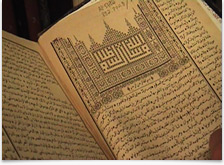 Watched this documentary 'The Great Book Robbery' on the 'Witness' program on ALJAZEERA English this afternoon. Incidentally, it will also be screened at Mosaic Rooms in London on May 15. 'The Great Book Robbery' was produced and directed by Benny Brunner, 2911 Foundation, and Xela Films in association with Aljazeera English. 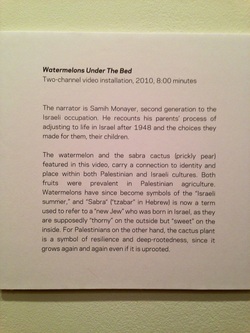 Last week I went to see the artist Dor Guez's exhibition held at London's Mosaic Rooms. This is the first UK solo show by the artist who is both Christian Palestinian and Jewish Tunisian. Part of Mosaic Rooms' cultural project 'Disappearing Cities', the exhibition aims to bring to the forefront the experiences of the Christian Palestinian minority who remained in the State of Israel after the 1948 war. Guez addresses the impact this decision has had not only on the generation that lived through it but also on the subsequent generations who continue to live there. A minority that finds itself marginalised by the narratives of the region. This is a very small exhibit consisting of two video installations ('40 Days' & 'Watermelons Under the Bed') in addition to several showcase tables displaying Palestinian Identity Cards and passports dating back to the British Mandate (1920-1948) and belonging to three generations of the Monayer family who are relatives of the artist himself. Hanging on the walls are a number of 'scanograms' (scanned archival images) from Guez's family album. To see a sample of these and to view the artist's work click HERE. The video installation '40 Days' - the family's mourning period when a loved one dies - is a 15-minute two-channel video installation about the destroyed grave sites in the Christian Palestinian cemetery in the city of Lod. Tombstones charred and desecrated (a skull is visible in one photo) and where once there must have been a metal cross, the family have painted one on with black paint due to theft that is rampant in the area. The cemetery is unkempt exuding neglect and abandonment mirroring much of how the Christian community in the area feel. A people with little say in what happens politically in the volatile area around them - quite simply 'a minority within a minority' - trying to get by as best they can given the predicaments they are faced with. The installation I found the more powerful was the video 'Watermelons Under the Bed'. In a mere eight minutes the artist manages to summarise what this whole exhibition is about: Personal identity and how to define it in a land rife with turmoil. An explanatory sign at the entrance to the room explains that 'the narrator in the video is Samih Monayer, second generation to the Israeli Occupation who recounts how his family had to adjust to their new life and how this has reflected on who he is today and how it has impacted on his own children as well'. A clip on YouTube, not shown at the exhibit, properly explains how the Monayer family view themselves and their situation. Click HERE to view. 'Watermelons Under the Bed', at first glance, seems a candid way for the Monayer family to talk about the family history. But on second and third viewing, you hear and notice other things: the voice of Samih's female relative (who we hear but do not see) instructing him not to speak of politics lest he jeopardise his job, Samih himself recalling his childhood unease when briefly attending the nearby Arab school and Samih's grandfather whose mood fluctuates between candid defiance and despondent resignation. Nobody is fully at ease and they all continually pause to think of what they are going to say next and how they are going to say it. This is a family who is the direct product of a conflict that carves its mark day after day and year after year on every Palestinian family's history and personal identity. It would be interesting to know how the Palestinian Christians will judge these videos. Will they see it as one Christian family's attempt to justify the life they have chosen for themselves in Israel or will they take offence that the Monayer family should presume that all Christian Palestinians share their view? Another question that poses itself is should the Christian Palestinians have to explain themselves in the first place? Exhibitions such as this one, although riddled with connotations, are important. In my opinion they serve as a reminder that time waits for no man and whether or not a permanent resolution to end the Israeli Palestinian conflict is near or far, we are forced to acknowledge the influence Israel's presence has already had on Palestinian ideas of history, culture and a collective identity. In the end, like it or not, we are all a product of the environment we live in. Dor Guez is the founder of the ongoing project The Christian Palestinian Archive which according to the artist's post on ArtSpace relies on photographs and documents to "research and document the diasporic community of Christian Palestinians living throughout the Middle East." On another front, June 2012 saw the laying of the cornerstone for the "Palestinian Museum" in Birzeit, a museum which according to its website is 'dedicated to the exploration and understanding of the culture, history and society of Palestine and the Palestinian people'. It will be interesting to see whether projects undertaken by artists such as Guez will be considered and whether future collective work collaborations will be possible once the museum opens in 2014. Share your opinion with me: If you've been to the exhibition, what did you make of it? If you haven't been, you can still do so as the exhibition continues until the end of May. However, for those of you NOT in London, you can click below to view the video "Watermelons Under the Bed' that has been posted on YouTube and maybe let me know what you think? 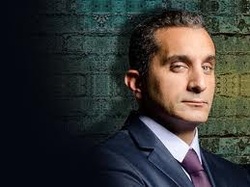 Yesterday, judging by my very short post (announcement really) I did have time on my hands to browse the internet and catch up on reading some paper clippings I'd left to the side for a more thorough reading, as you would! Anyway, to cut a long story short, I happened upon an online article about Bassem Youssef carried out by The Guardian in May 2012. Now, if like myself, you do not live in the Middle East, in this case Egypt, then you might not be familiar with this personality who has swept the Arab World by storm. A heart surgeon, Bassem Youssef has swapped his doctor's garb for swanky suits to host one of Egypt's most politically satirical programs ever shown on Egyptian satellite channels named 'Al-Bernameg" (literally translated as 'The Programme'). It is a show that pokes fun namely at politicians, and people in authority in Egypt as well as other television personalities with the occasional guest appearance of well-known Arab entertainment stars attending as spectators in the audience or as guests to be interviewed on the show. He also attempts quite convincing impersonations of various political figures. 'Al-Bernameg' is currently broadcast on CBC, a privately-owned satellite channel. The show is presented in Arabic and is close in format to that of America's 'Daily Show' hosted by Jon Stewart, a fact that Bassem is quick to proudly confirm in his interviews. He once openly admitted when asked that indeed he is a real fan of Stewart and it would be a real honor to meet the man himself to share tips on how to make 'Al-Bernameg' an even more sterling show; not that Bassem seems to need any help in that regard at all. The popularity of the show has proved incredible and the fact that it is in its new season proves that it remains a major show hitting its mark over and over again. Youssef has since been a guest on Stewart's show. However, the program's success is understandably accompanied with its own set of problems and most of all controversy. One can even argue that controversy is the main ingredient for its success. The recipe for the program is simple enough: You make everyone a target but some people are better targets to aim at than others, especially if your target happens to be Egypt's recently-elected President Mursi or the party of the Islamic Brotherhood to which the President belongs to. So far, Youssef has been hit with two defamation lawsuits concerning Egypt's president, a fact contested by the supporters of the program who look upon such lawsuits as the government's unease at being criticised and even its total backtracking on promises to allow freedom of speech in the country. To understand where Youssef is coming from, it would do well to read a debate that he participated in hosted at the American University of Cairo and reported in the Egypt's Daily News. To read the article, click HERE. You can watch episodes of "The Programme - البرنامج" by clicking HERE and to hear an interview with him on CNN in English, click HERE. |

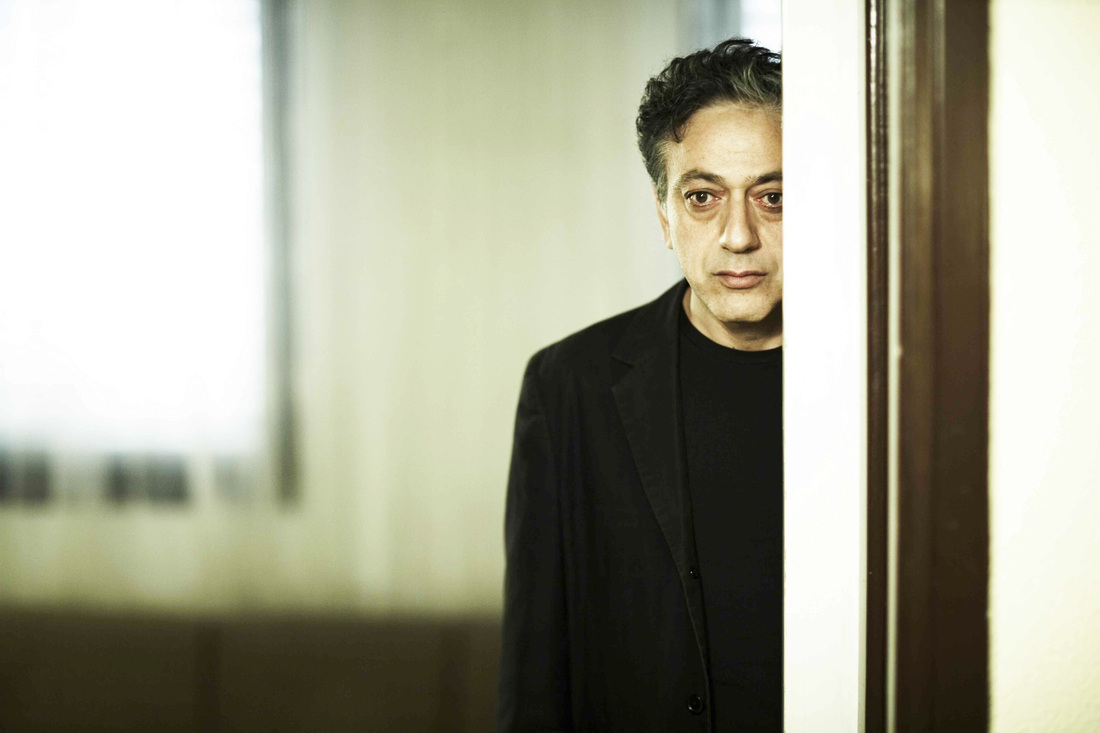
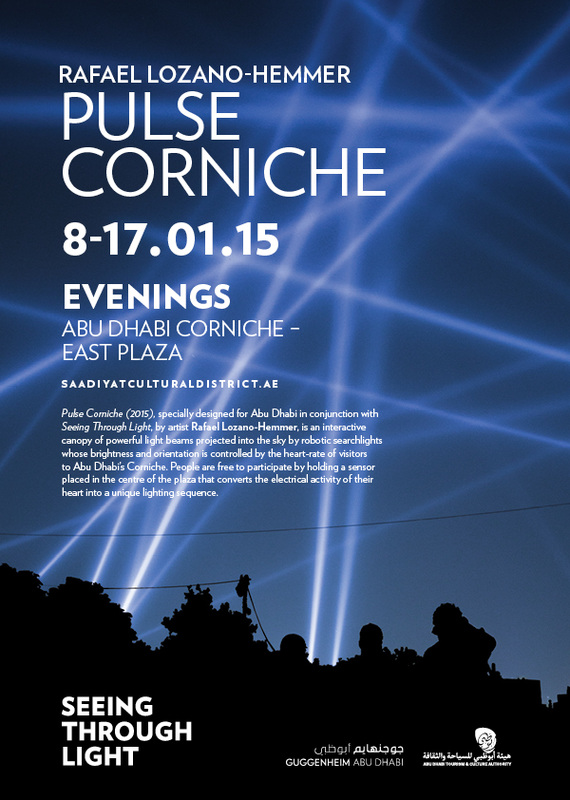
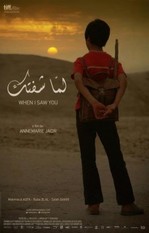
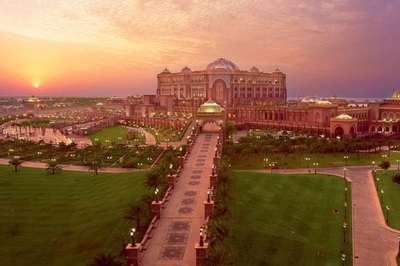
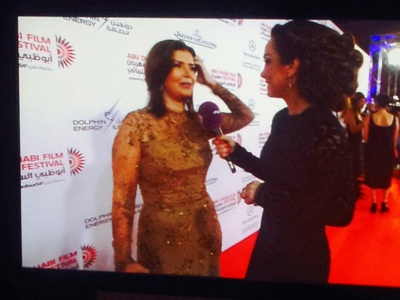
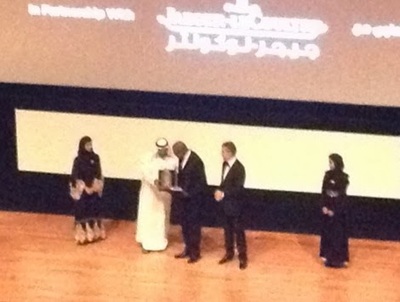
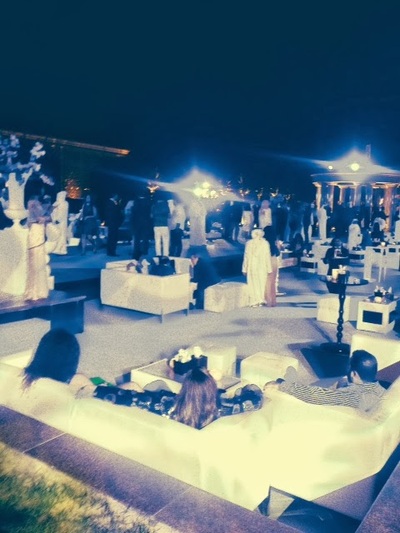
 RSS Feed
RSS Feed
